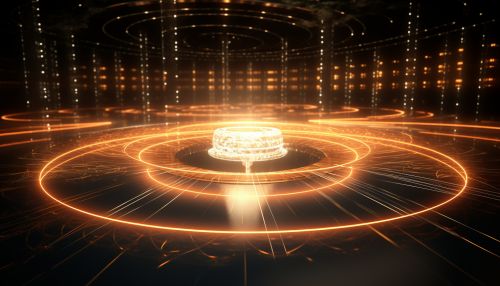Quantum Computing with Quantum Optomechanical Systems under Quantum Noise
Introduction
Quantum computing is a rapidly advancing field of study that leverages the principles of quantum mechanics to perform complex computations. One of the key components of quantum computing is the quantum optomechanical system, which combines the principles of quantum optics and quantum mechanics to manipulate and control quantum states. However, these systems are not immune to quantum noise, which can significantly affect their performance and reliability. This article delves into the intricacies of quantum computing with quantum optomechanical systems under quantum noise, providing a comprehensive understanding of the subject matter.
Quantum Computing
Quantum computing is a type of computation that uses quantum bits, or qubits, to encode information. Unlike classical bits, which can be either 0 or 1, qubits can be in a superposition of states, allowing them to perform multiple calculations simultaneously. This property, along with entanglement and quantum interference, gives quantum computers their potential for incredibly fast and complex computation.
Quantum Optomechanical Systems
Quantum optomechanical systems are physical systems that allow for the manipulation of mechanical oscillators using light. These systems are characterized by their ability to couple optical and mechanical degrees of freedom at the quantum level. They have found applications in a variety of areas, including quantum information processing, precision measurement, and fundamental tests of quantum mechanics.


Quantum Noise
Quantum noise is a fundamental aspect of quantum systems, arising from the inherent uncertainty in the properties of quantum particles. In the context of quantum computing and quantum optomechanical systems, quantum noise can lead to errors in the computation or manipulation of quantum states, known as quantum decoherence. Understanding and mitigating the effects of quantum noise is a critical aspect of developing reliable and efficient quantum computing systems.
Quantum Computing with Quantum Optomechanical Systems
Quantum optomechanical systems have emerged as a promising platform for quantum computing due to their ability to couple light and mechanical motion at the quantum level. This coupling allows for the manipulation of qubits using light, which can be controlled with high precision. However, the presence of quantum noise can introduce errors in the quantum computation process, affecting the reliability and efficiency of the quantum computer.
Mitigating Quantum Noise in Quantum Optomechanical Systems
Several strategies have been developed to mitigate the effects of quantum noise in quantum optomechanical systems. These include the use of error correction codes, which can detect and correct errors in the quantum state, and the use of quantum control techniques, which can manipulate the quantum state to minimize the effects of noise. Despite these efforts, quantum noise remains a significant challenge in the development of practical quantum computers.
Conclusion
Quantum computing with quantum optomechanical systems under quantum noise is a complex and challenging field of study. Despite the challenges posed by quantum noise, significant progress has been made in understanding and mitigating its effects. As research continues, it is hoped that these efforts will lead to the development of practical and reliable quantum computers.
